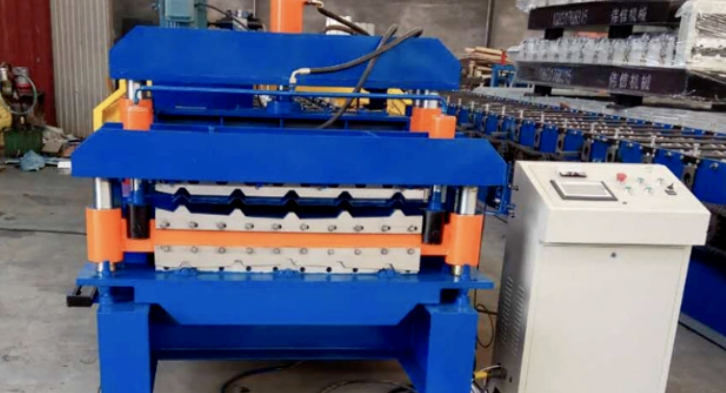
Posted on Tuesday, September 24, 2024
Roll forming technology plays a pivotal role in ensuring that these critical components not only meet exacting standards but also deliver long-term durability and enhanced aesthetics. Whether for steel erectors or roofing contractors, understanding the advantages of roll-formed panels is essential for delivering top-tier projects.
Roll forming is a continuous bending operation in which a long strip of metal is passed through sets of rolls to achieve the desired profile. This process is highly efficient for producing consistent shapes, making it ideal for roofing panels, wall cladding, and other structural components.
One of the key benefits of roll forming technology is the ability to produce precise, uniform panels. With roll forming machines, every panel can be crafted to exact measurements, reducing waste and ensuring a perfect fit during installation. For roofing contractors, this means fewer on-site adjustments and faster project completion times, while steel erectors can rely on consistently high-quality products.
Roofing and cladding systems are subject to extreme environmental conditions, from intense heat and cold to wind and rain. Roll-formed panels are known for their structural integrity, thanks to the precision in the manufacturing process. This ensures long-lasting performance, helping contractors deliver projects that stand the test of time.
Beyond strength and precision, roll forming offers flexibility in design. From sleek modern roofing profiles to traditional cladding designs, roll forming machines can be customized to create a wide variety of shapes and finishes. This flexibility allows architects and builders to meet both aesthetic and functional goals without compromise.
Roll forming minimizes material waste during production. The efficiency of the roll forming process means that large quantities of roofing and cladding panels can be produced quickly and consistently, making it an eco-friendly option for contractors looking to reduce their environmental footprint.
For roofing contractors and steel erectors, roll forming technology offers the option to work with both standard profiles (commonly used in the US) and custom-designed profiles tailored to specific project needs. Whether you're working with Snaplock, standing seam, or custom metal wall systems, roll forming machines deliver precision every time.
Roll forming technology is a game-changer for the roofing and cladding industries. Its ability to deliver precision, durability, and aesthetic flexibility makes it the go-to choice for contractors focused on quality and efficiency. By incorporating roll-formed panels into your projects, you ensure lasting value and superior performance for clients.
Machine matcher specialise in matching your roll forming machine requirements with the perfect new or pre owned machine.
We partner with, and represent some of the finest roll forming manufacturers in the market. For more information and a free machine quote please contact us today or view all machines.

Used Purlin Roll Forming Machines for Sale Worldwide
Posted on Sunday, January 25, 2026
Pre-Owned Roll Forming Machines for Purlin & Structural Steel Profiles

Used Roof Panel Roll Forming Machines for Sale Worldwide
Posted on Sunday, January 25, 2026
Pre-Owned Roll Forming Machines for Roofing Panel Production

Used Roll Forming Machines for Sale Worldwide
Posted on Tuesday, January 20, 2026
Pre-Owned Roll Forming Machines with Inspection, Verification & Global Support

Steel Coil Supply for Roll Forming Machines Worldwide
Posted on Tuesday, January 20, 2026
Reliable Steel Coil Supply for Roll Forming, Fabrication & Manufacturing Applications
Copyright 2026 © Machine Matcher.